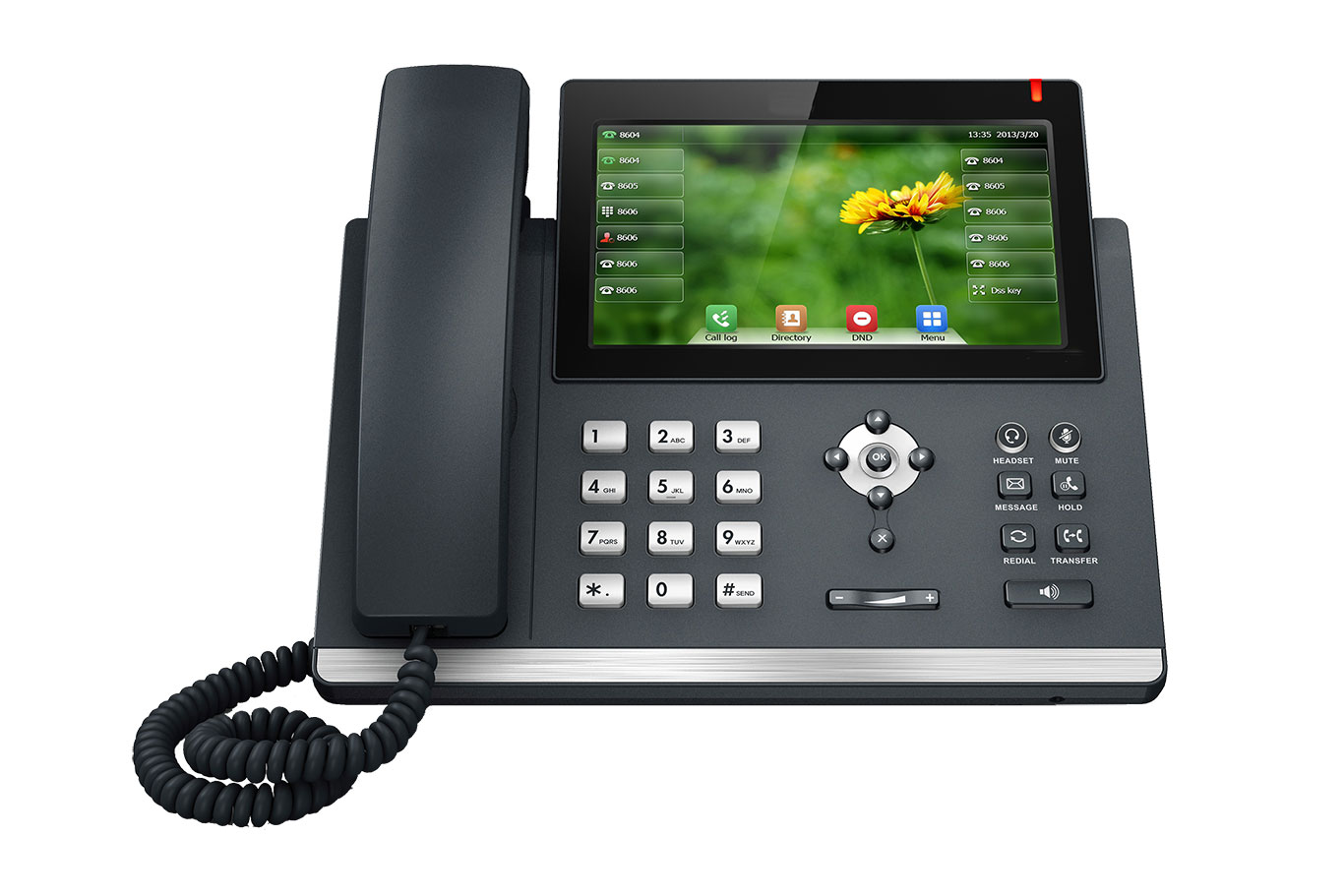For decades, businesses have relied on traditional landline phones for communication. However, with advancing technology and the upcoming PSTN switch-off in 2025, many businesses are making the switch to VoIP phone systems.
VoIP (Voice over Internet Protocol) offers lower costs, greater flexibility, and advanced features that traditional landlines simply can’t match. In this blog, we’ll explore why businesses are replacing VoIP and landline phones and how this transition can benefit your company.
The Key Differences Between VoIP and Landline Phones
The key differences between VoiP and Landline Phones include:
1. How They Work
- Landline Phones: Use copper telephone lines to transmit voice signals.
- VoIP Phones: Use the internet to send voice data, allowing calls from any internet-connected device.
2. Cost Comparison
- Landline Phones: Require monthly line rental, expensive call charges, and costly hardware.
- VoIP Phones: Have lower running costs, with free or reduced call rates and no expensive line rental.
3. Features & Flexibility
- Landlines: Limited to basic calling, voicemail, and caller ID.
- VoIP: Offers video calls, call forwarding, voicemail-to-email, mobile integration, and more.
Why Businesses Are Switching from VoIP and Landline Phones
1. The 2025 PSTN Switch-Off
In December 2025, the UK’s Public Switched Telephone Network (PSTN) will be shut down. This means all traditional landline phone services will be replaced with VoIP-based digital solutions. Businesses that rely on landlines must switch to VoIP or risk losing phone service.
2. Significant Cost Savings
Switching to VoIP instead of a landline saves businesses money in several ways:
- No line rental fees – VoIP operates over an internet connection, eliminating costly phone lines.
- Lower call charges – Many VoIP providers offer free UK calls and reduced international rates.
- No expensive hardware – Use existing devices like smartphones, laptops, or VoIP desk phones.
3. Improved Business Flexibility & Remote Work Support
Unlike landlines, which are fixed to a single location, VoIP phone systems provide greater flexibility:
- Make and receive calls from anywhere – Ideal for remote and hybrid workers.
- Call forwarding to mobile devices – Ensures businesses never miss a call.
- Scalable solutions – Easily add or remove users without additional wiring or hardware.
4. Advanced Features for Business Growth
A VoIP phone system provides features that landline phones lack:
- Voicemail-to-email – Receive voicemails directly in your inbox.
- Auto-attendant – Route calls professionally without a receptionist.
- Video conferencing – Host online meetings without extra software.
- CRM integration – Sync calls with customer databases for improved service.
5. Reliability & Future-Proof Technology
Landlines are becoming outdated, while VoIP is the future of communication. VoIP systems:
- Use cloud technology – Preventing downtime due to local infrastructure issues.
- Provide automatic updates – Ensuring businesses always have the latest features.
- Support business expansion – Easily scale up without installing new phone lines.
How to Transition VoIP and Landline Phones
Step 1: Choose a VoIP Provider
Look for a VoIP service provider that offers:
- Affordable UK call packages
- Business-grade security and encryption
- Integration with existing CRM and collaboration tools
Step 2: Select Your VoIP Equipment
Most businesses switching from landline to VoIP use one of the following:
- VoIP Desk Phones – Similar to traditional landlines but internet-enabled.
- VoIP Adapters (ATA) – Convert existing landline phones to VoIP.
- Softphones (Apps & Software) – Allow calls from laptops, tablets, and mobile devices.
Step 3: Port Your Existing Business Number
- Keep your current landline number by porting it to a VoIP service.
- Notify your provider about the switch to ensure a seamless transition.
Step 4: Set Up & Configure Your VoIP System
- Connect VoIP phones or adapters to your internet network.
- Customise call forwarding, voicemail, and auto-attendant settings.
- Train staff on using VoIP for business communication.
Future-Proof Your Business with a VoIP Phone System
The shift from landline phones to VoIP is happening now. Businesses that switch early will benefit from cost savings, advanced features, and seamless communication.
Why Switch VoIP and Landline Phone Now?
- Avoid disruption before the 2025 PSTN switch-off
- Reduce business phone costs
- Upgrade to a flexible, remote-ready communication system
If you would like to find out more, please get in touch with us to discuss your requirements or book a meeting with a specialist at a time that works for you.
📞 Phone: 01489 297070
📧 Email: hello@digitoolbox.com
📅 Book a Meeting with a Specialist
FAQ: VoIP and Landline Phone
1. Will VoIP and Landline Phones stop working in 2025?
Yes, the UK’s PSTN switch-off in December 2025 means traditional landline phones will no longer work unless migrated to VoIP and landline phone alternatives.
2. Is VoIP and Landline Phone service cheaper than a traditional landline?
Yes! VoIP and landline phone solutions eliminate costly line rental fees and offer lower call rates, especially for international calls.
3. Can I keep my landline number when switching to VoIP and Landline Phone services?
Absolutely! Most VoIP and landline phone providers support number porting, allowing you to retain your existing business or home phone number.
4. Do I need new hardware for VoIP and Landline Phone services?
Not always. You can continue using your landline phone with a VoIP adapter or upgrade to a VoIP desk phone or mobile VoIP app.
5. Is VoIP and Landline Phone service reliable for businesses?
Yes! With a strong internet connection, VoIP and landline phone services offer excellent call quality and reliability, making them a great choice for business communication.




